Our movement is a beautiful one, and we are celebrating everything that makes our LGBTQIA+ members and supporters amazing today and everyday.
But we also can’t ignore the moment that we’re in.
From healthcare restrictions, outright bans on drag performances, bans on inclusive and important literature, attacks on trans people’s rights to live freely, this is a time for not only celebration but action.
The LGBTQIA+ community has a history of resistance and activism that runs deep. Today, we highlight some instances of queer and queer Latinx organizing that we can all draw hope and inspiration from.
Take a moment to follow along with us:
The Cooper Do-nuts Riot of 1959
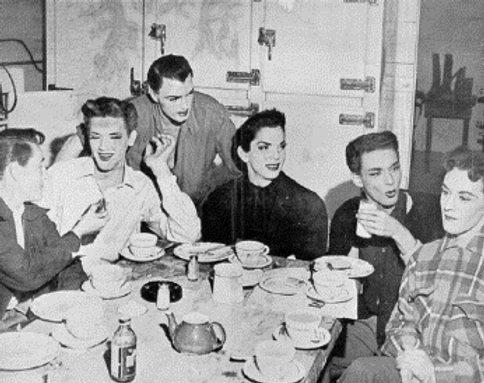
Unrest broke out in front of Cooper Do-nuts, a café in Los Angeles that welcomed queer people, after harassment by police officers. The routine targeting through ID checks led to the arrest of 5 people, including drag queens, sex workers and gay men. Among those arrested was Mexican-American writer John Rechy from El Paso, TX. Rechy started to resist the arrest and mistreatment, spurring the crowd of onlookers into action. They began throwing donuts, coffee cups, and trash at the officers until they fled without completing the arrests.
These arrests were especially heinous because they were often published in local newspapers as a way to publicly out and shame queer people. After this, Rechy went on to publish scores of novels and essays on gay culture and women-centered narratives that highlighted systemic issues of homophobia and misogyny in larger US culture.
Compton’s Cafeteria Riot of 1966
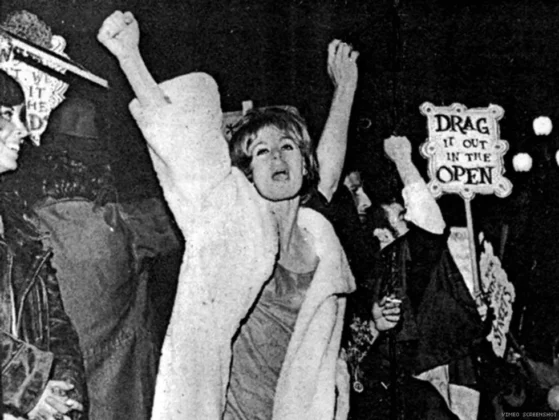
Located in San Francisco’s Tenderloin district, an area traditionally frequented by marginalized people, Gene Compton’s Cafeteria was one of the few places transgender women could socialize freely and openly. It was also constantly targeted by police who sought to harass and abuse trans women. Led by the courage and resistance of women like trans Latina activist Fecilia Flames Elizondo, the Compton’s Cafeteria Riot erupted as a response to the ongoing harassment, improper arrests, and police violence faced by the local transgender community.
Elizondo’s contributions and the riot ushered in a renewed era of organizing across the Bay Area that ultimately resulted in major legislative wins, such as the repeal of anti-cross-dressing laws in 1974, and the establishment of a new unit within the San Francisco Department of Public Health that specialized in providing social services to transgender and gender nonconforming people. In 2019, the space surrounding the original cafeteria was legally recognized as Compton’s Transgender Cultural District, the first of its kind in the world.
1969 Stonewall Uprising
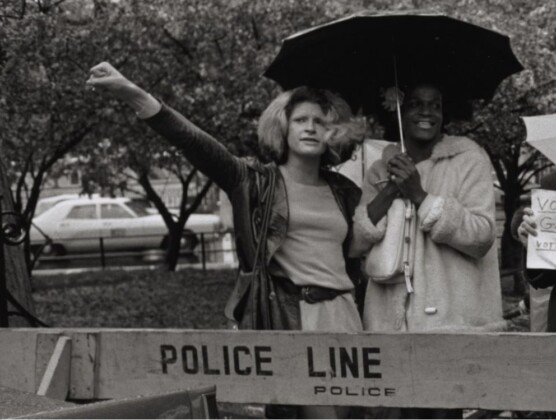
This series of protests against police violence began on June 28, 1969 in New York City after police raided the Stonewall Inn, a private gay bar. On this night, after a raid of the bar by undercover police began, queer people and patrons of Stonewall fought back by hurling rocks and bottles at the police. Then this sparked two additional protests against the NYPD, held in front of the bar over the next few days. Trans Latina activist Sylvia Rivera was one of the leaders of these actions alongside her friend Marsha P. Johnson, and they went on to create STAR (Street Transvestite Action Revolutionaries).
The uprising laid the foundation for the creation of queer rights organizations still in existence today. At a time when the gay community did not acknowledge the needs of transgender people and people of color, Rivera continued organizing for rights for all – igniting a new generation of militant queer liberation. In remembrance of the Stonewall Uprising and protests, the first gay pride marches took place on the anniversary one year later.
Dyke March of 1993
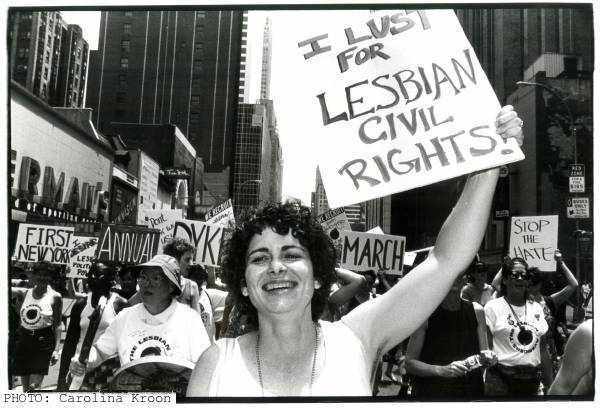
The 1993 Dyke March in Washington, DC set the prime example of what powerful, lesbian organizing could look like. The night before the official March on Washington for Lesbian, Gay and Bisexual Rights and Liberation, over 200,000 lesbians took to the streets to protest what many saw as the control of queer pride events by white gay men, often at the expense of lesbians and BIPOC (Black, Indigenous, Asian and Latina) lesbians. This unshakeable legacy is still carried on today, through Dyke Marches across the world the push back on against centuries of systemic erasure, injustices, and oppression.
ACT UP Action in St Patrick’s Cathedral
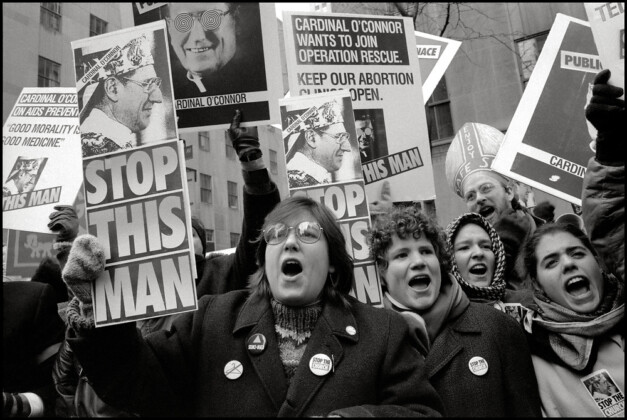
On Dec. 10, 1989, Act Up (a grassroots political group working to end the AIDS pandemic) held a protest action in St Patrick’s Cathedral, against Cardinal John O’Connor’s efforts to block gay rights legislation, along with the archdiocese’s opposition to safe-sex education in Catholic/public schools during the height of the AIDS crisis in the US. The action was documented by Chicano videographer and artist Ray Navarro, who founded the NYC ACT UP chapter’s Latino Caucus to center the needs of queer Latinos during the HIV and AIDS crisis. Navarro’s contributions led to increased attention on how the crisis was impacting Latinx communities.
During the protest, Navarro was outside dressed as Jesus, leading chants and interviewing fellow demonstrators in the streets. It was said that “in his own way, as someone who [grew up] Catholic, too, [he] was sort of reclaiming this Christ figure as a revolutionary”. This protest remains one of the largest ever staged against the church, with more than 4,500 people participating, and over 100 arrested by New York police.
Every aspect of every community member is essential to our survival. Along with securing voting freedoms, fighting for the humane treatment of migrants, and more – we’re committed to doing everything we can to protect and uplift LGBTQIA+ community in the U.S., across Latin America and the rest of the globe.
We know we still have a long way to go, and that the issues of Latinx political and LGBTQIA+ rights go hand in hand. Our gente are multifaceted and our intersecting identities cannot be erased.
Liberation and el Buenvivir is achieved when all of us have the opportunity to live freely. Know that Mijente is here for you as a place of sanctuary, strength, and joy.
Want to support queer Latinx grassroots organizing today? Buy your Pride merch from our compas at Familia: Trans Queer Liberation Movement 🏳️⚧️
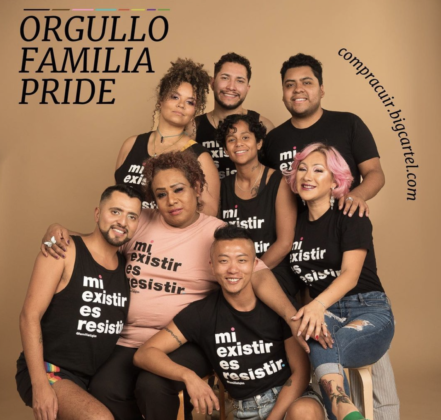
“There is power in building kinship with our beloved chosen family. This Pride while you are courageously existing and resisting these legislative attacks wear a garment of protection to remind yourself that ‘Mi Existir Es Resistir’.”